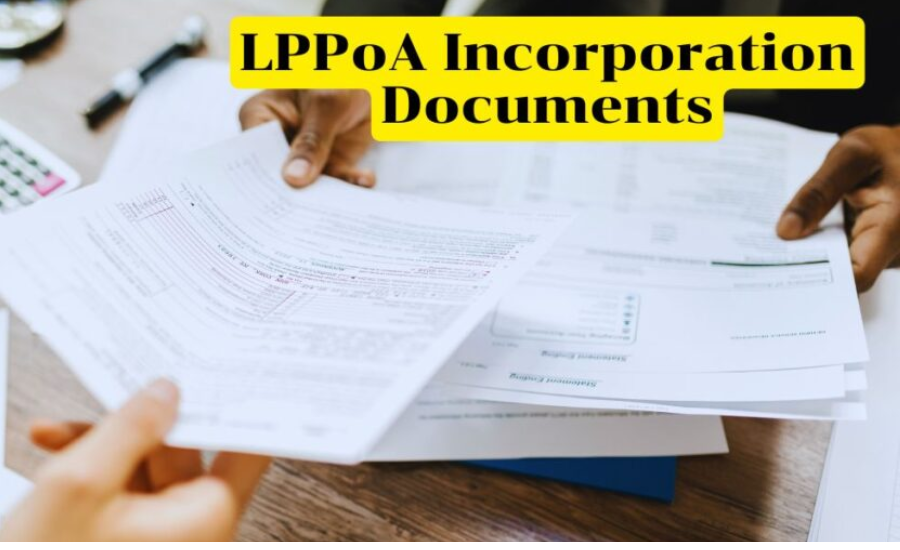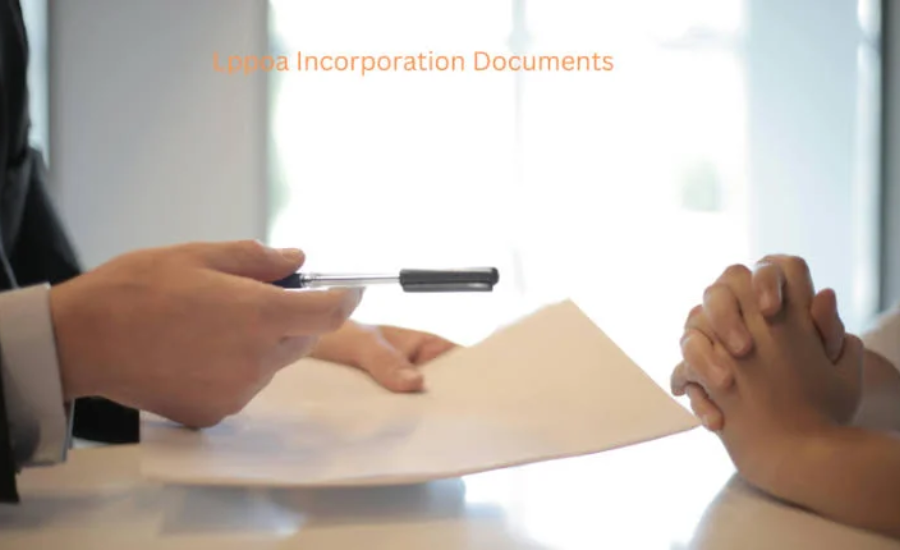For residents of Lake Paradise, the Lake Paradise Property Owners Association (LPPoA) plays a vital role in maintaining shared spaces and overseeing communal resources. To ensure its smooth operation, the LPPoA relies heavily on incorporation documents. These documents not only provide legal recognition to the association but also lay out the governance structure and the procedural guidelines that govern its activities.
Incorporation documents are foundational for the LPPoA, as they define the rules, responsibilities, and authority that members must follow. This guide aims to offer a comprehensive overview of these essential documents, highlighting their significance, core components, and best practices for effective management. By exploring this, you’ll gain a clear understanding of how these documents support governance within the community and contribute to a well-organized, harmonious environment for residents.
Key Components Of LPPoA Incorporation Documents
Gaining a deeper understanding of the components within the Lake Paradise Property Owners Association (LPPoA) incorporation documents will provide clarity on how the community is managed. Here’s a breakdown of the essential elements typically found in these documents:
1. Articles of Incorporation
The Articles of Incorporation formally establish the LPPoA as a legal entity. These documents generally outline:
- The official name and registered address of the association
- The purpose or mission of the association (e.g., overseeing community upkeep and standards)
- Eligibility criteria and rights of membership
- Foundational guidelines that shape the association’s structure and operations
2. Bylaws
Bylaws act as the association’s operational framework, offering detailed insights into how the organization functions. Key elements often include:
- Duties and responsibilities of board members
- Procedures for voting and member participation
- Rules governing meetings, elections, and decision-making processes
- Guidelines for managing dues, fees, and financial transparency
3. Covenants, Conditions, and Restrictions (CC&Rs)
The CC&Rs outline the rules homeowners must follow within the community to ensure harmony. These typically include:
- Standards for property upkeep and maintenance
- Restrictions on property alterations or improvements
- Guidelines for the use of communal spaces and amenities
- Regulations regarding noise, pets, and landscaping practices
4. Policies and Resolutions
Policies define the procedures for enforcing community rules, collecting dues, and handling finances. Resolutions, on the other hand, are decisions made by the board that influence the governance and operations of the community.
Why LPPoA Incorporation Documents Are Essential

Incorporation documents for Lake Paradise Property Owners Association (LPPoA) are far from mere formalities; they are crucial for establishing the legal standing and operational framework of your community association. Without these proper documents, the LPPoA could face legal issues, struggle with credibility, and expose members to personal liability. Here’s why these documents are so important:
Legal Safeguards
One of the key advantages of incorporating an LPPoA is the protection it provides to its members. Well-prepared incorporation documents ensure that individual members’ personal assets are safeguarded against liabilities or legal claims associated with the community’s operations, provided that these documents are thorough and legally sound.
Business Continuity
Incorporation under a Property Owners Association (POA) ensures that the association can continue to operate smoothly, even if key members or board members are unavailable. The governance structure allows appointed individuals to step in and make decisions, ensuring uninterrupted management of the community’s resources.
Clear Definition of Roles and Responsibilities
The incorporation documents of the LPPoA clarify the roles and duties of all involved members. This helps reduce confusion, streamlines operations, and minimizes conflicts, both internally among members and externally with service providers or other stakeholders.
Regulatory Adherence
Incorporation documents help ensure that the LPPoA complies with local, state, and federal regulations. This includes adherence to tax responsibilities, licensing requirements, and industry-specific obligations that the association must fulfill.
Key Components Of LPPoA Incorporation Documents
Knowing what’s included in LPPoA incorporation documents is vital for a successful incorporation process. The following are the key documents that should be part of the package:
1. Articles of Incorporation
These are the foundational documents that legally form the LPPoA. They provide essential details, including the association’s name, its address, the names of key members, and the purpose of the organization. These documents must align with the specific requirements of the jurisdiction where the LPPoA is registered.
2. Operating Agreement
The operating agreement is a comprehensive document that specifies how the association will function. It covers management structures, decision-making processes, profit allocation (if applicable), and ownership details. For LPPoA entities, this document will clearly define the roles and limits of the Property Owners Association.
3. Power of Attorney (POA) Agreement
A critical part of the incorporation process, the POA agreement outlines who holds the authority to make decisions on behalf of the LPPoA and specifies the limits of their powers. This document must be meticulously drafted to prevent any misuse of authority or legal complications.
4. Partner Agreement
This agreement establishes the rights and obligations of each member involved in the LPPoA. It is crucial for ensuring that all parties are aligned in terms of their roles, contributions, and expectations.
5. Tax Identification Documents
To comply with tax regulations, the LPPoA must apply for an Employer Identification Number (EIN). This number is essential for conducting financial activities and ensuring tax compliance.
6. Regulatory Licenses and Permits
Depending on the location and nature of the LPPoA’s activities, certain industry-specific licenses or permits may be required. These documents are necessary to operate the association legally and avoid potential penalties.
Certificate Of Registration
In addition to filing the Articles of Incorporation, securing a Certificate of Registration is a critical step for your Lake Paradise Property Owners Association (LPPoA). This certificate serves as official recognition from the state’s attorney regulation office, confirming that your association meets all legal and ethical standards necessary for operating within that jurisdiction.
The process to obtain this certificate typically requires the submission of your Articles of Incorporation, a Partnership Agreement, and any other relevant supporting documents. Be prepared to pay applicable registration fees and show proof of insurance, as these are often mandatory.
Once issued, the Certificate of Registration is a powerful testament to the credibility and legitimacy of your LPPoA. It helps build trust with clients, partners, and stakeholders. Regularly checking renewal requirements is key to maintaining your association’s compliance and good standing.
Tax Identification Number
Acquiring a Tax Identification Number (TIN) is an essential step in establishing the financial framework for your LPPoA. This number is required for tax filings, setting up bank accounts, and managing employee payroll.
Applying for a TIN is a simple and quick process, typically done online via the IRS website. It’s important to apply for this number as early as possible, as it is a critical component for many business-related activities.
To remain compliant with federal tax regulations, keeping accurate financial records and meeting tax deadlines is crucial. Seeking advice from a tax professional can provide valuable guidance on managing your LPPoA’s finances effectively.
Business Licenses And Permits
Depending on your location, your LPPoA may need specific licenses or permits to operate legally. These could include general business licenses, zoning permits, or professional licenses related to the legal industry.
It’s important to thoroughly research the local regulatory landscape and consult with local authorities to identify which licenses are necessary. Securing these licenses ensures that your association operates lawfully, preventing any legal issues or fines.
Staying informed about the renewal and update schedules for these licenses is vital. Keeping track of expiration dates and ensuring continuous compliance should be a priority for your LPPoA.
Professional Liability Insurance
Securing professional liability insurance for your LPPoA is a wise precaution against potential legal claims. Also known as malpractice insurance, this policy protects your association in cases of alleged professional negligence or misconduct.
When choosing the right insurance policy, it’s important to assess the unique risks and coverage needs of your LPPoA. Consulting with an experienced insurance broker can help ensure that you select a policy that fits your budget and adequately covers potential risks.
Maintaining proper insurance coverage is not just a legal requirement but also a reflection of your association’s commitment to ethical standards. Regular reviews of your policy ensure that your coverage keeps pace with the evolving needs and risks of your association.
Resources For Drafting LPPoA Incorporation Documents

There are many valuable resources available to help you navigate the process of creating and managing your Lake Paradise Property Owners Association (LPPoA) incorporation documents. State governments often provide helpful templates and guidelines for drafting essential documents such as the Articles of Incorporation and association bylaws. These templates are essential for ensuring that your association adheres to local regulations and understands the specific requirements for property owner associations.
In addition, many legal professionals specialize in assisting homeowners associations with their incorporation needs. These experts offer personalized services that can guide your LPPoA through complex legal processes, ensuring that your documentation is both comprehensive and compliant with applicable laws.
Networking with other property owners associations, both in person and through online forums, can also be a great way to gain insights. These platforms often feature shared resources, such as sample bylaws, financial reporting templates, and best practice tips for effective governance. Learning from other successful associations can provide valuable guidance as you develop your incorporation documents.
Submitting Annual Reports
Once your Lake Paradise Property Owners Association (LPPoA) is established, submitting annual reports becomes a standard requirement. These reports update the state authorities on your association’s organizational structure, management team, and financial health.
To ensure accuracy and compliance, maintaining well-organized records is crucial when preparing these reports. Failing to meet deadlines or submitting incorrect details can lead to fines or, in extreme cases, the dissolution of your LPPoA.
It’s advisable to assign a dedicated team member or hire an external service provider to handle the preparation and filing of your annual reports. This ensures your LPPoA remains in good standing while allowing you and your team to focus on other important aspects of managing your community.
Ensuring Ongoing Compliance
Ongoing compliance is essential for the continued success of any LPPoA. This means not only following ethical guidelines but also staying updated on evolving laws and fulfilling all regulatory obligations.
Regular compliance audits and employee training sessions can help mitigate potential risks. Taking a proactive stance on compliance not only protects your organization’s reputation but also builds trust with both residents and other stakeholders.
Embedding a culture of compliance into your LPPoA’s operations creates a positive environment that fosters long-term success. Prioritizing adherence to legal standards is an investment in the health and growth of your organization.
Case Studies: Examples Of Successful LPPoA Incorporation
Studying successful case examples of LPPoA incorporations offers valuable lessons that can inform your own process. In one instance, a community’s LPPoA successfully managed the incorporation process by involving residents in the creation of the bylaws. This inclusive, collaborative approach not only helped ensure that the bylaws met the community’s needs but also fostered a stronger sense of ownership and engagement among the residents.
Another noteworthy case featured an LPPoA that placed a strong emphasis on transparency, particularly in its financial practices. By regularly publishing detailed financial statements and holding open discussions about budget decisions, the association built trust and increased participation from its members. This openness enhanced the sense of community and collaboration, leading to greater involvement in decision-making processes.
These examples underscore the importance of transparency and community involvement in the governance process. By adopting similar strategies, other LPPoAs can create a more inclusive, communicative, and efficient governance framework, ultimately benefiting both the association and its residents.
FAQs About LPPoA Incorporation Documents
1. What are LPPoA incorporation documents?
LPPoA incorporation documents are official papers that legally establish and govern a Property Owners Association (POA) for Lake Paradise residents. These documents include Articles of Incorporation, Bylaws, and other legal agreements that outline how the association operates and the rules that residents must follow.
2. Why are LPPoA incorporation documents important?
These documents are crucial because they provide legal recognition, define the governance structure, and ensure proper management of community resources. They also protect both the association and its members by clearly stating roles, responsibilities, and regulations.
3. What are the main components of LPPoA incorporation documents?
The key components include the Articles of Incorporation, Bylaws, Covenants, Conditions, and Restrictions (CC&Rs), and any relevant policies or resolutions. Each of these elements helps to define how the association will function, from membership rights to financial management.
4. How often should LPPoA incorporation documents be updated?
It’s important to periodically review and update your LPPoA incorporation documents, especially when there are significant changes in the community, local laws, or financial management. Annual reviews ensure that the documents stay relevant and compliant with current regulations.
5. Can LPPoA incorporation documents be modified?
Yes, LPPoA incorporation documents can be modified, but typically changes must be approved by the board and, in some cases, by the community members themselves. Any amendments should be documented properly to ensure continued legal validity.
6. How do I ensure compliance with state and federal regulations?
Consulting with legal professionals, keeping track of local regulations, and maintaining thorough documentation are key steps in ensuring compliance. Regular audits and legal advice can help prevent potential issues.
Conclusion
LPPoA incorporation documents are vital for establishing the framework within which a property owners association operates. They ensure that community resources are managed effectively, members’ rights are protected, and legal requirements are met. These documents not only offer a roadmap for internal governance but also safeguard against potential legal or operational issues. By understanding and regularly updating these documents, your LPPoA can function smoothly, foster a sense of community, and ensure long-term success. For optimal results, consider consulting with legal professionals to ensure all aspects of the incorporation are handled correctly and in compliance with local laws.
Read Next: Arfraierqfazdetdo.org
